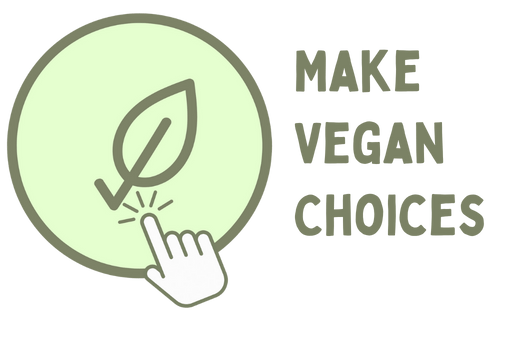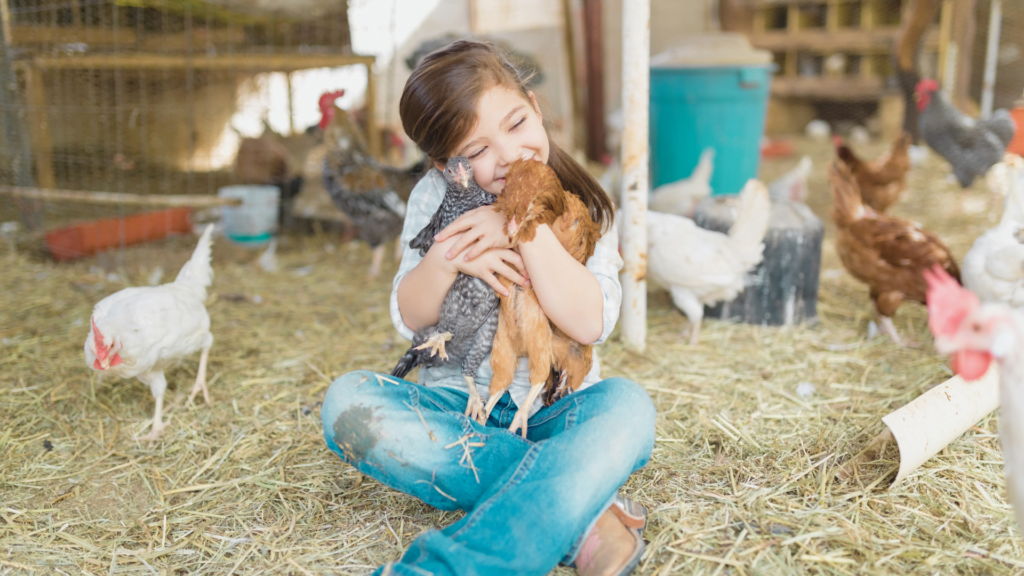Why People Go Vegan And Stay Vegan
Have you ever looked into the eyes of an animal and just… known? That flicker of awareness, the quiet understanding that they, too, feel fear and joy? That’s the moment many vegans point to when asked why go vegan.
It’s easy to dismiss veganism as just another diet trend. I get it—from the outside, it can seem restrictive or even extreme. But peel back the label, and you’ll find something deeper: a choice to live in a way that causes less harm. Not just for health, but for them. The animals.
This isn’t about perfection. (I’ve met plenty of plant-based eaters who slip up—because without that emotional ‘why,’ it’s just rules.) But when you connect the dots—when you realize your meal was someone’s life—something shifts. And that shift? It’s changing everything.
Recent surveys confirm what I’ve seen firsthand: animal welfare is the heartbeat of this movement. Every time someone chooses oat milk over dairy or a veggie burger over beef, it’s a quiet act of rebellion. A vote for kindness. And that? That’s unstoppable.
Here is a Vomad study from 2019 asking participants what made them go vegan:
And a Statista study from 2021:
A Veggly survey of 8500 vegan participants found that:
89.1% of respondents indicated animal welfare was a key reason for cutting out animal products from their diet.
In September 2021, there were an estimated 79 million vegans globally, which is just over 1% of the whole population.
More and more consumers are becoming aware of the unnecessary harm brought on to animals by our food choices. Over 200 hundred million chickens are killed every day to meet the world’s demand.
Also, considering the standard slaughtered age of farmed animals compared to their natural lifespan, farmed animals are slaughtered as babies:
* Most chickens and turkeys are bred to grow so fast that their bodies cannot endure very long. When not bred for consumption, chickens and turkeys can grow at a rate their bodies can sustain for many years.
Understanding Farm Animal Suffering: A Growing Consumer Awareness
Of course vegans acknowledge the environmental factors as a result of animal agriculture and the health concerns regarding animal protein consumption, but the main reason people choose to go vegan is because they care about the animals and do not want to cause them unnecessary harm.
Nobody takes joy in making animals suffer, not even the factory farming industry itself but the industry’s primary goal is to maximise profit and mass farming efficiency, regardless of the animals’ needs. Animals are treated poorly on factory farms because it is efficient for the farmer, not because the farmer enjoys animal suffering. Farmed animals are treated as commodities without any regard for the animals’ comfort, safety, feelings or general well-being.
Recognizing the Sentience of Farmed Animals: A Shift in Consumer Perception
Farmed animals such as cows, pigs and chickens are self-aware sentient beings. They experience fear when being transported to an unfamiliar environment, pain when being thrown around or mistreated, joy when feeding with other animals, excitement if they are able to play and roam freely and will show many other personality traits similar to our pets at home.
Even if these farmed animals are being specifically bred to be killed for human consumption, it doesn’t mean that they don’t get terrified and feel fear and pain like a cat or dog. It has been proven that farm animals have a surprising level of intelligence:
- Sheep can recognise up to 50 other sheep’s faces and remember them for two years
- Cows show excitement when they discover how to open a gate leading to a food reward
- Mother hens teach their chicks which foods are good to eat.
- Pigs have advanced communication skills. As pigs have a wide range of hearing they mainly use auditory (sound) signals to communicate with each other. Amazingly, they also have the capacity to communicate with humans – they can learn and respond to human gestures (like pointing) and vocal cues.
How Awareness of Factory Farming Practices Influences the Move to Veganism
Most consumers just see the final packaged animal product and give no thought to the consequences of their purchase. It is difficult for people to have empathy for farmed animals if they have no idea what these animals have been through to become a packaged product for human consumption. Sadly, in most cases, meat consumers will refuse to see how the animals they eat are routinely:
- artificially inseminated,
- discarded as male babies,
- mutilated without anesthetic,
- Transported in cruel conditions via road or sea,
- crammed into tiny spaces with no freedom or daylight,
- experience their last moments of being alive in fear
Consumers want to believe that the industry is “humane” and that each farmed animal is:
- Killed in the least painful way possible,
- Treated kindly on the farm, like pets
- Treated immediately if sick or injured
- Housed in livable conditions
The tragic reality is that farmed animals are living a nightmare of existence and the video footage available online exposing these horrors is upsetting but helps consumers understand veganism.
Why Some U.S. States Banned Filming of Factory Farm Cruelty
The “ag gag” law passed in 2012 criminalizes the undercover investigations that reveal abuse on farms.
One of the horrifying stories that instigated Iowa’s ag-gag law was the investigation of Sparboe Farms in 2011. An undercover investigator, working for Sparboe on a travelling crew that visited eight facilities in three states, got footage of workers burning the beaks off baby chicks, throwing chickens by the neck, and leaving dead chickens to rot in cages they shared with live birds.
The footage aired on Good Morning America, 20/20, and World News Tonight With Diane Sawyer. Almost a million people watched the footage on YouTube. People were infuriated and horrified. McDonald’s, Target, and other major egg purchasers cut ties with Sparboe Farms.
But it wasn’t just Sparboe Farms. Other investigations — in Iowa and all over the country — have turned up similar atrocities elsewhere.
This video by the Humane Society of the United States was captured in Iowa in 2010, and depicts abuses at Rose Acre Farms and Rembrandt Enterprises. It would have been illegal to film after 2012, when the state’s ag-gag law was enacted. The investigation found cages with weeks-old decomposed hen carcasses, live hens with severe infections and abscesses, and hens suffering uterine prolapses (a consequence of the strain of laying far too many eggs), including a hen whose internal organs became caught in the floor of the cage.
Importantly, these are not the result of a few maliciously cruel slaughterhouse workers. These things occur routinely on factory farms — they’re systemic problems, not one-off individual ones.
Common painful routine practices in the industry include:
Because we don’t see inside the factory farms and slaughterhouses, it is easy for us to compartmentalise between the animals we live with and the animals we eat.
In 2010 PETA made a point of this and hosted Paul McCartney to make a video called “Glass Walls” to open peoples’ eyes to the violence animals experience across most major industries from laboratories to slaughterhouses to the clothing industry.
These days people are becoming more exposed to the industry’s cruel practices. There are well-known documentaries exposing the horrors of the animal industry:
How Exposing Factory Farm Cruelty Is Driving Change
The emotional response we get after seeing the animal suffering and the horrific cruelty is what has driven the vegan movement. The internet and social media has allowed information to be shared faster now than ever before, resulting in a surge in vegan online activism.
Vegan influencers, animal rights organisations as well as vegan consumers are sharing the information they learn, exposing the cruelty and they are putting it in front of non-vegan consumers to create consumer awareness. Consumers generally avoid seeing the common factory farming practices as most people know what they see will be upsetting.
Scientific Evidence Confirms: We Don’t Need Animal Protein for Optimal Health
Patrik Baboumian: Germany’s Strongest Man – log lifting champion.
The main reasons people consume animal products are: taste, habit, tradition, convenience and to a large degree, the false belief that animal protein is essential to being healthy, as this is what we have always been taught. More scientific research and studies have now confirmed that we can be healthy and thrive on a well-planned plant-based diet and we do not require animal protein to be healthy.
There are well-known documentaries that have made this information mainstream and have caused people to question the health issues regarding animal protein.
Why Consumers, Not Governments, Hold the Power to Drive Change
- Consumers need to see what horrors animals are being put through just for a few minutes of our taste enjoyment.
- Consumers need to understand that they do not need animal protein to be healthy.
- Consumers need to acknowledge that they are directly responsible for animal suffering by the purchase of animal products
- Consumers need to know that no animal wants to die and that there is no such thing as humane slaughter.
Every individual makes a significant impact on saving animals from suffering, helping the environment and saving water. Just being vegan for one day makes a significant impact.
The Powerful Benefits of Going Vegan: Why It’s Worth Considering
By understanding the impact on animals’ lives, the environment and your health, you can make more informed purchasing decisions that could ease your conscience by reducing unnecessary animal suffering, help the planet and potentially improve your health.
Please don’t turn a blind eye to their suffering because eating animal protein is all you know. A couple of minutes of taste pleasure for you is a lifetime of abuse and suffering for the animal. Go watch a video or a documentary of an animal being slaughtered for meat and ask yourself how seeing that makes you feel, if you find it acceptable and if you are happy to keep contributing to this cruel unnecessary industry.

